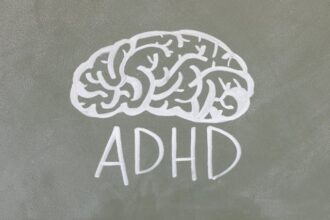A recent study conducted by Tulane University has revealed that the brain-enhancing properties of the Mediterranean diet might be attributed to its impact on the gut microbiota.
Published in the journal Gut Microbes Reports, the research undertaken by the Tulane University School of Medicine reveals that individuals adhering to a Mediterranean diet exhibit distinct patterns of gut bacteria compared to those consuming a typical Western diet. This variation in gut bacteria is strongly associated with improved memory and cognitive functions. Rebecca Solch-Ottaiano, PhD, a neurology research instructor at Tulane’s Clinical Neuroscience Research Center and the study’s lead author, stated, “We’ve long understood that our dietary choices influence brain functions. This research provides insights into the mechanisms behind this influence, suggesting that the gut microbiome plays a pivotal role in this process.”
In an experimental setup involving rats, the study demonstrated that a 14-week diet rich in key Mediterranean ingredients such as olive oil, fish, and fibre led to an increase in four beneficial types of gut bacteria and a decrease in five detrimental types. These changes were directly linked to enhanced performance in maze tests designed to assess memory and learning capabilities. Notably, higher levels of certain bacteria like Candidatus Saccharimonas were tied to superior cognitive performance, whereas an increase in bacteria such as Bifidobacterium was associated with poorer memory functionality.
The findings also highlighted that rats on the Mediterranean diet showed greater cognitive flexibility—the ability to process and adapt to new information—and demonstrated improved working memory compared to their counterparts on the Western diet. Additionally, these rats maintained lower levels of harmful LDL cholesterol.
This groundbreaking study is the first to evaluate the Mediterranean diet’s effects on microbiota and cognitive function in a rodent model, providing potential insight into its benefits during critical developmental periods. The research team, led by Dr. Demetrius M. Maraganore, the Herbert J. Harvey, Jr. Chair of Neurosciences at Tulane, used young rats roughly equivalent to 18-year-old humans to simulate the impact of dietary patterns during significant developmental phases. The choice of diet for the study reflects the complexity of human dietary habits.
Dr. Maraganore remarked, “Our results suggest that the Mediterranean diet, or its biological impacts, might be utilized to enhance academic performance in teenagers or professional performance in young adults. Although our findings are initially based on animal models, they resonate with human studies that connect the Mediterranean diet with enhanced memory capabilities and a reduced risk of dementia.”
The researchers stress the need for more extensive human studies to corroborate these findings and deepen our understanding of the intricate interplay between diet, gut microbiota, and brain function in the youth.
For individuals keen on adopting a Mediterranean dietary pattern, essential elements include using olive oil as the primary fat source, consuming ample vegetables, fruits, and whole grains, including fish and lean proteins in the diet, limiting the intake of red meat and saturated fats, and ensuring a high fibre intake from a variety of plant sources. This diet not only supports cognitive and gut health but also offers a balanced approach to eating that could be beneficial across various stages of life.
More information: Rebecca Solch-Ottaiano et al, Comparison between two divergent diets, Mediterranean and Western, on gut microbiota and cognitive function in young sprague dawley rats, Gut Microbes Reports. DOI: 10.1080/29933935.2024.2439490
Journal information: Gut Microbes Reports Provided by Tulane University








